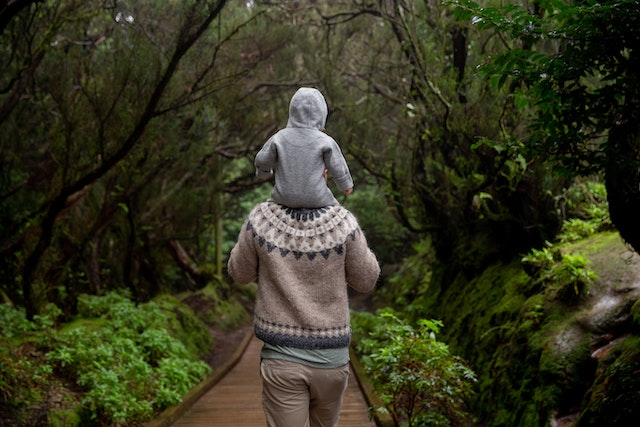Parenting is an extraordinary journey, marked by the desire to raise exceptional individuals. As we navigate this path, it’s crucial to impart eco-friendly lessons to our children, teaching them the significance of caring for the environment. Just like nurturing their well-being and character, instilling environmental consciousness equips them to become responsible global citizens. Embracing sustainability is a shared commitment, and by integrating eco-friendly practices into our daily lives, we can inspire and guide our kids to be mindful stewards of the planet. Let’s embark on this transformative journey together, fostering a greener future for generations to come.
These eco-friendly pieces of advice for bringing up sustainability-focused kids will assist your entire family in getting more eco-conscious in basic activities, thereby enabling you to take control of your carbon footprints on the planet Earth, whether you’ve always been a person who believes in helping the environment or is holding out hope to gain knowledge along with your child.
Listed below are some of the best and most efficient ways to teach your kids some eco-friendly lessons.
1. Teach Your Children to Save Water
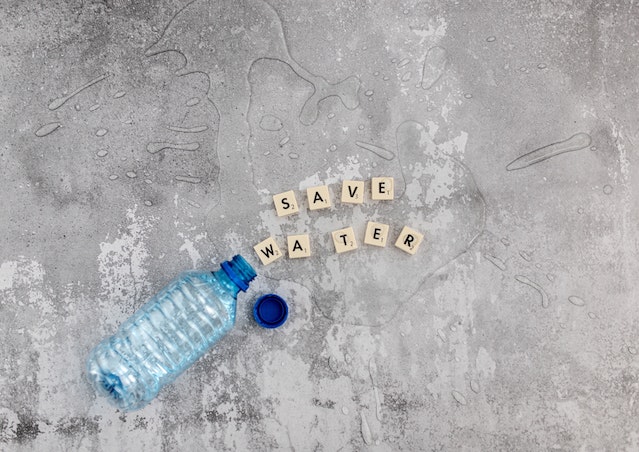
The globe is in the grip of a water problem. While most people have access to adequate, safe water, the remainder of the globe does not. In impoverished countries, water contamination is responsible for more than 80% of recorded illnesses. With a global shortage of clean drinking water, millions of individuals are denied the right to something that should be a basic human right. Instructing the children to conserve water whenever feasible will help them become more aware of their global influence.
Although water is among the most important resources on the planet, its supply is limited. While water covers more than 70% of the Planet’s surface, only 3% is freshwater. People must all strive together to educate subsequent generations that protecting water is the only way to save the earth.
There are several ways to educate your child on the value of water conservation, including:
- Demonstrating the significance of simply closing off the tap when brushing their teeth.
- Emphasizing the need to swiftly repairing any plumbing issues or shower heads.
- Reading literature about water management measures to them.
- Turn the faucet knobs securely after using them to guarantee no leaks.
- Choosing a shower above a bath to save water.
- Showering less often.
- Instead of throwing away unused water, reuse it for something else, such as watering the plants or refilling a pet’s water bowl.
2. Teach Your Children How to Recycle and Compost
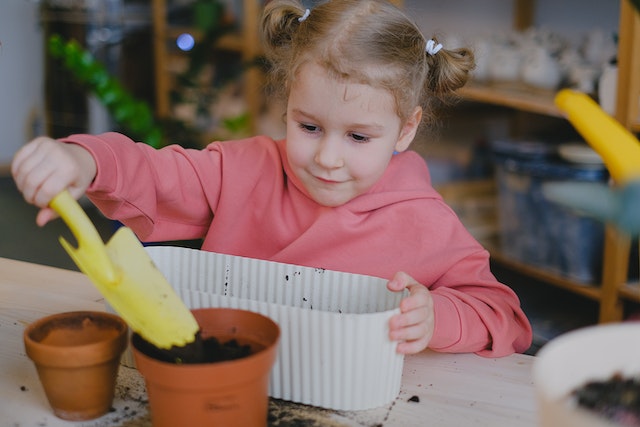
Recycling is a tested way to lessen your carbon impact. Don’t be afraid to involve your children in recycling initiatives from a young age. Teach kids the value of recycling, such as why people recycle and its influence on your community and the earth. Discuss the various products that can and can’t be recycled and their importance in your family.
Some of the finest ways to teach your children the value of recycling and composting are as follows:
- Reading books to your youngster on the significance of recycling.
- Allowing them to participate in your household recycling process actively.
- Establish a recycling area in your home for them to manage.
- Pick up garbage and recyclables in the park.
- Include children in your regular recycling drive, or have them observe and converse with the recycling worker on your route.
- Demonstrate to them how meals and other domestic things are composted.
- Teach children about the importance of composting and its environmental impact.
- Urge them to offer new ideas for reducing your family’s carbon footprint.
3. DIY Projects Using Recyclable Materials
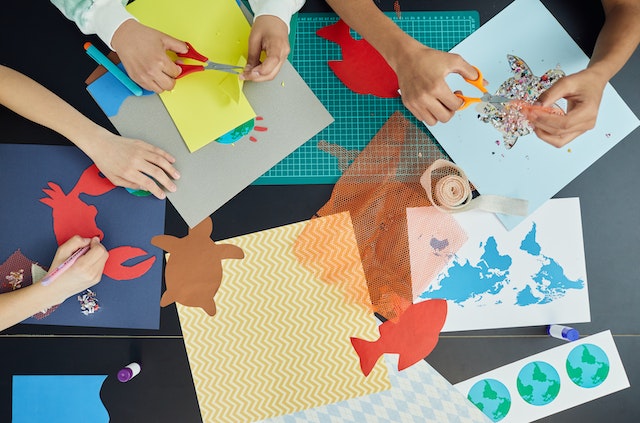
There may be a no better approach to encourage your child’s inventiveness than to engage them in a small DIY craft project. There are infinite opportunities for repurposing your recycled materials into artistic creations, from newspaper leaves in the autumn to toilet paper bird nests in the spring.
DIY projects are a terrific method to enhance their inventiveness, resourcefulness, and self-sufficiency while also making the kids more aware of their usage. They are also an excellent boredom reliever and family-time exercise at any time of year.
4. Get Outside and Establish a Love of the Environment in Your Children
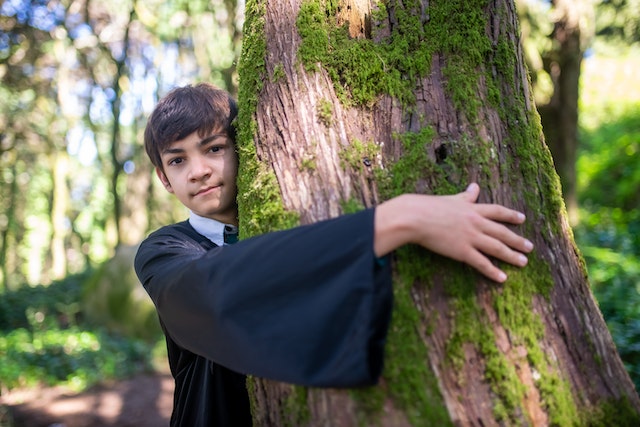
Parenting eco-friendly children, no matter how you accomplish it, has one objective: instilling a deep relationship, compassion, and appreciation for the planet all around us. What is the best approach to accomplish this? Get outside and enjoy the natural beauty in its purest form. Active interaction in nature from an early age fosters a love of the environment.
Set the seed down earlier than usual and watch their fascination with nature blossom as they age. Encouraging your children to experience how pollution or climate change harms the planet has a considerable effect and can serve as a stimulus for potential decisions.
5. Become Energy Conscious at Home
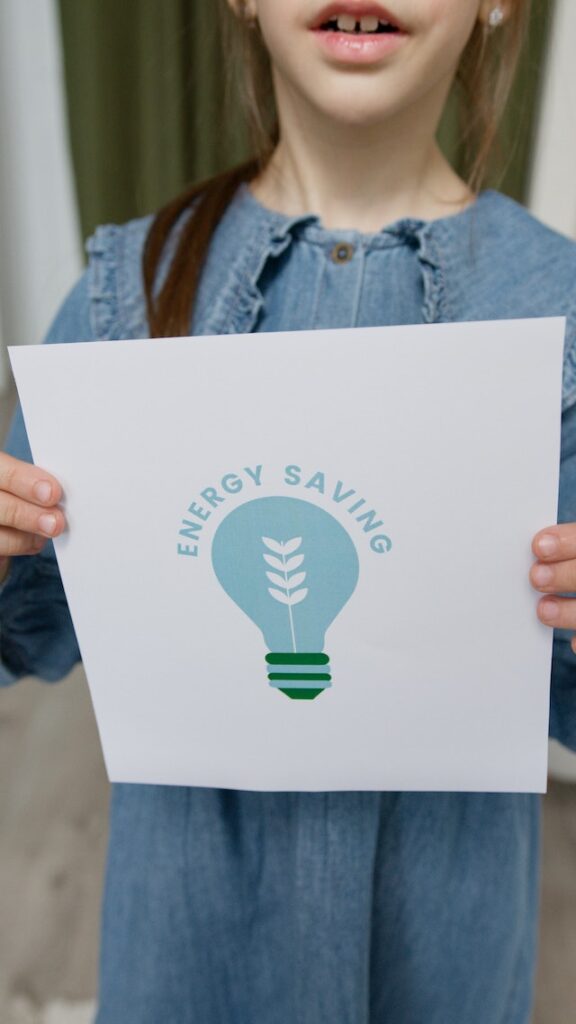
Energy usage is a major concern in the worldwide climate change issue. Energy use has a significant environmental impact and is one of the humans’ most significant concerns as a species. Educating your children about the significance of energy conservation and its effect will help them recognize and use measures to reduce energy usage. Whenever it refers to energy consumption, setting a good example is crucial.
Some of the essential techniques to reduce your energy consumption are as follows:
- Unplugging gadgets while they’re not being used
- Adding a low-flow showerhead
- Composting
- Less driving and more cycling and walking
- Utilizing cloth napkins
- Avoiding the use of plastic straws
Conclusion
There are numerous strategies for parents to raise environmentally conscious children, ranging from making decisions at home by reusing and composting to contributing to picking up rubbish at a nearby park. Any effort you make to aid the world is preferable to none. Each small decision you make as a family brings you another inch ahead to a more environmentally friendly future. We urge you to respect the environment, and the initial step is to demonstrate to the planet how much you appreciate your actions.

